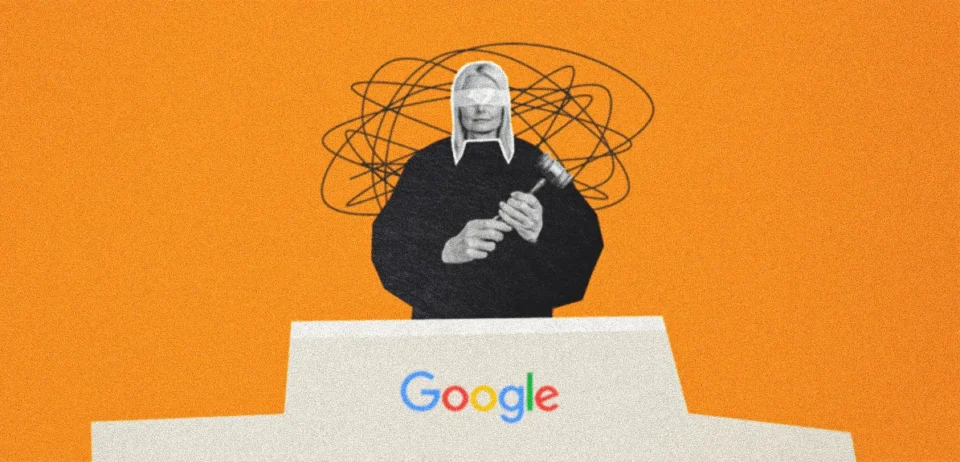
A Deep Dive into the Google Ad Tech Antitrust Lawsuit
If you’ve used the internet, you’ve heard of Google. It’s everywhere— ads, videos, and even in our language. “Google it” has replaced a variety of verbs for online search. Google’s everywhere, all the time. But this nonstop omnipresence has caught the attention of some pretty important people— like the U.S. Department of Justice (DOJ). So, now the world has been observing a historic antitrust trial against Google.
Entering 2025, Google finds itself in court more often than not. But why is the world’s known search engine company suddenly in legal hot water? Turns out, Google’s search engine popularity and ad tech business is under scrutiny, and the DOJ has questions. Big questions.
Well, let’s dig into it—without, you know, Googling it. Let’s dive into what’s happening, why it matters, and what the future might hold for Google.
No surprise: Google was ruled a monopoly in the US market
As many of us know, the August 5th court ruling on Google ad tech antitrust trial had some eyebrow-raising declarations. The judge called Google a monopolist in the U.S. market, claiming the company has blurred out every competitor, making it seem like the only choice. But if other search engines exist, like Apple’s Safari and DuckDuckGo, why haven’t they taken the spotlight?
Let’s start with Apple—the juicy bit. The reason Apple’s Safari hasn’t ditched Google is pretty simple: money. And not just pocket change. We’re talking billions. Google has been paying Apple huge sums to keep itself as the default on Safari. It’s a well-oiled machine, and Apple is quite happy with the arrangement. Alternate options? Well, sure, there’s Bing and Firefox, but the story gets spicier. Apple reportedly said that no price would make them accept Bing as their search engine. Smoked.
It’s not just Apple. Fortune 500 companies also heavily rely on Google as their go-to General Search Engine (GSE). Google’s reach extends further with contracts, making it the default Android search engine through agreements with cell carriers and manufacturers. This dominance in every corner of the digital ecosystem is ruffling feathers in court. Google’s playing a high-stakes game of who-pays-the-most, and right now, they have been winning since a long time.
One court ruling on Google VS United States has opened a can of worms for the company
Less than a month after the federal court’s antitrust ruling, Yelp—one of Google’s rivals— filed its own antitrust suit, accusing Google of stifling competition in local search. Yelp’s CEO, Jeremy Stoppleman, told The New York Times that the winds in antitrust cases have shifted, and now Yelp is claiming that Google is bulldozing competition in local search services.
Google is throwing its weight around in the local search market, making it harder for competitors to thrive. However, we can see the real casualties in this saga. Consumers and advertisers. Consumers are getting lower-quality search results as Google’s grip tightens, and with the rise of AI, misinformation and AI-generated content are more prevalent than ever in search results (yep, you can see it for yourself). Advertisers also feel the pinch as Google’s near-monopoly in the General Search Engine space limits competition, creativity, and better ad placements.
Now, the battle against Google is heating up, and this might be the beginning of a long antitrust war.
Google is bringing changes — in its leadership, not in the market
Fixing-it mode or panic train—whatever label you want to put on it, Google is making headlines with its transformation. However, all these transformations are currently happening inside the company, not in the market.
On October 17, Sundar Pichai announced in a memo that Prabhakar Raghavan, the senior vice president in charge of search, ads, and other important segments, will now become the chief technologist.
Google is shuffling executives into leading positions. While this may show some change of air to the public, it doesn’t do much for the ad tech antitrust cases or the market.
However, the upcoming days—or years—will be interesting for the tech and advertising world, as the government will likely break up Google’s monopoly by placing the company under certain limitations.
Repercussions of Google ad tech antitrust lawsuits on the market
The Google ad tech antitrust lawsuits are shaking the foundations of the digital market, and the Department of Justice (DOJ) is laser-focused on breaking Google’s anti-competitive stronghold on the General Search Engine (GSE) market. By tackling four main areas—behavioral changes, structural reforms, business practices, and AI regulations—the government is not just looking at the immediate future but also prepping for what’s to come.
The DOJ’s primary goal is to level the playing field for Google’s competitors, which are often overshadowed. Brands and advertisers will naturally follow when consumers are given viable alternatives (other search engines). Right now, Google’s dominance has left little room for anyone else, but a more competitive market could give rise to better choices for both users and businesses.
So, what’s the fix? Will Google willingly promote its rivals? Unlikely. A possible solution could come from the government enforcing behavioral remedies—like mandating Google be more transparent and less biased in how it displays search results. Structural changes could also include splitting parts of Google’s ad tech operations or restricting certain practices, like their exclusive contracts with companies like Apple.
Then, there’s the issue of Google’s massive database, brimming with billions of user-profiles and search data. This is a goldmine that keeps Google far ahead of the competition. The DOJ might impose rules on how Google handles this data, perhaps limiting its ability to monopolize insights or even forcing Google to share specific data with competitors to level the field.
Cut to the chase
A lot has happened at Google, starting in 2020 when the Department of Justice filed an ad tech antitrust lawsuit against the company. Everything began to change after the ruling favored the government on August 5, 2024.

